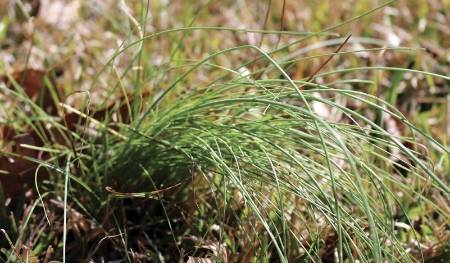Wild Garlic

This weed is a common lawn weed that is native to Europe, Africa and the Middle east but has naturalized through much of the world. They are related to the garlic we grow in our garden is are a bulbous perennial. Wild garlic form grass-like clumps of leaves topped with scapes (the flower bud) which appear in the late spring through early summer. The scape will have a number of small bulbils and a few or no flowers. The leaves look similar to grass and can often be missed until you smell the onion odor after mowing the lawn. Wild garlic can be found in disturbed areas, meadows, thickets and lawns spreading by seeds, area bulbils and bulb offsets below the ground. It is a cool season perennial that emerges in the fall through the winter, creates the bulbils in the spring then goes dormant through the heat of the summer only to come back up in the fall. The leaves, flowers and bulbs are edible and can be used similar to chives however there are better options to grow in your garden that are less aggressive in spreading. Once Wild Garlic is established it is difficult to manage it with only mechanical measures and it is also resistant to pre-emergent herbicides. The best way to establish control is through a combination of mowing and post emergent chemical application. While active ingredients such as 2.4-D, dicamba, MCPP, quiclorac and others can provide some control it’s best to use a product that contains multiple active ingredients such as Trimec, Ortho Weed B Gon, Ferti-lome Weed-Out Lawn Weed Killer and Bonide Weed Killer for the best control. Spray in the fall when the plants are first coming up for the year rather than in the spring or heat of summer when they are going dormant and control will be difficult.

Have questions? Contact our office where our Horticulture Extension Agent will assist you with questions.
Phone: (316) 321-9660
Email: callae@ksu.edu